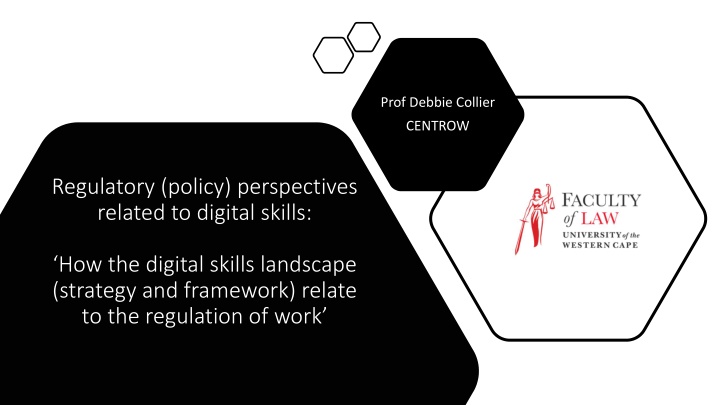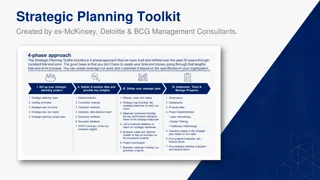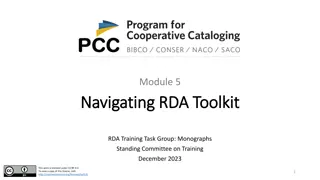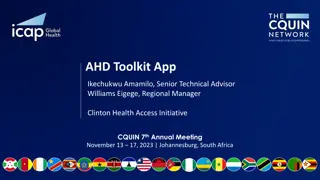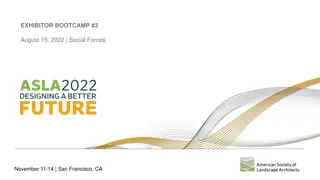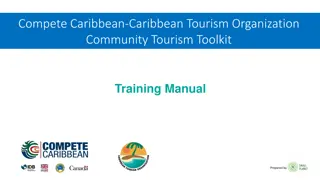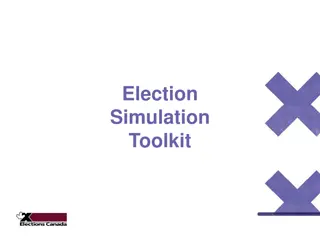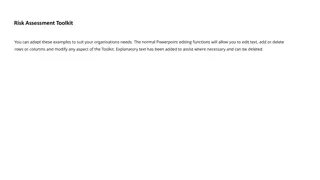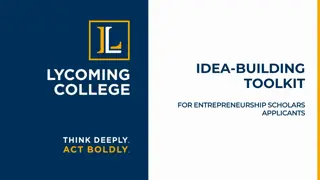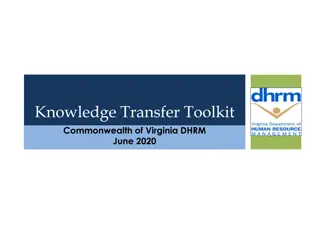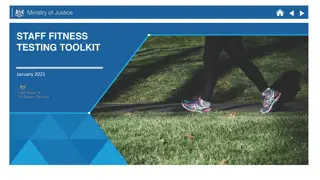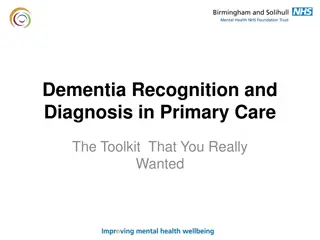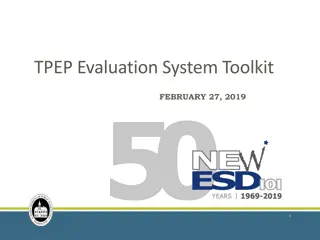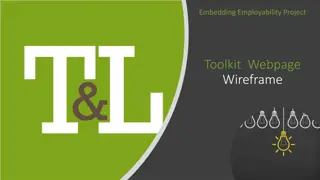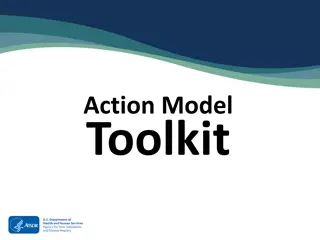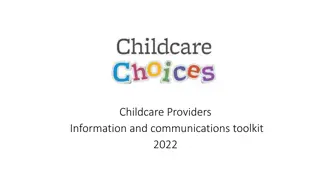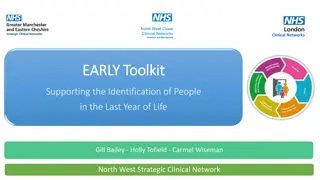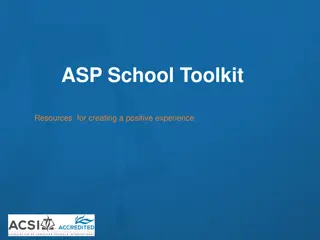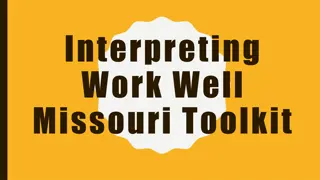Business Process Management with ADONIS - A Comprehensive Toolkit
Users can efficiently model business processes and organizational structures using the ADONIS BPM toolkit, which offers extensive functionality for acquiring, analyzing, simulating, and evaluating processes and environments. Installation instructions include steps for accessing and setting up the toolkit, empowering users to create models, classes, and objects for effective process management.
Download Presentation

Please find below an Image/Link to download the presentation.
The content on the website is provided AS IS for your information and personal use only. It may not be sold, licensed, or shared on other websites without obtaining consent from the author.If you encounter any issues during the download, it is possible that the publisher has removed the file from their server.
You are allowed to download the files provided on this website for personal or commercial use, subject to the condition that they are used lawfully. All files are the property of their respective owners.
The content on the website is provided AS IS for your information and personal use only. It may not be sold, licensed, or shared on other websites without obtaining consent from the author.
E N D
Presentation Transcript
Prof Debbie Collier CENTROW Regulatory (policy) perspectives related to digital skills: How the digital skills landscape (strategy and framework) relate to the regulation of work
Digital skills policy landscape Digital and Future Skills Strategy empowerment for effective participation in the 21stsociety envisages a society of digitally skilled South Africans consciously avoids setting out specific digital skills And provides: A roadmap for priority digital skills action points identifies action points A roadmap for stakeholder collaboration identifies stakeholders (including organized business and labour) 8 interconnected strategy elements Digital foundations; digital futures & mastery Industry 4.0 and the world of work Digital skills divide and systemic inequality special emphasis on youth Building digital skills awareness; Research & monitoring on digital skills Co-ordination across stakeholders (incl. gov & social partners); Funding for digital skills Digital Skills Framework (DSFOne) A systematized and structured approach ( a conceptual and logical space ) for digital skills development and for the transfer and acquisition of digital skills Categorises sets of digital skills and identifies the levels of proficiency related to the educational levels (primary to tertiary) and the world of work A framework for digital skills development and competencies for the acquisition of - Digital literacy / e-literacy Sector user skills Digital leadership skills ICT practitioner skills Identifies 6 competence areas a planning tool that can be used in multiple contexts and in the world of work the framework would scaffold skills development / reskilling conversations at various levels National Sectoral Enterprise / organisational Implementation programme guide Foundation for the continuously evolving efforts to create a strong digital skills building ecosystem in creating the more in-depth processes for implementation organisations must step forward to produce the specific planning documents that are needed at sectoral level, and at organizational level to supplement this document and prove greater detail to this complex endeavour .
Disruptive forces impacting the world of work The disruptions lead to negotiation (social dialogue) processes (national, sectoral, and enterprise level) and require a plan for reskilling based on a sectoral digital skills framework in the context of: technological disruptions impacting the organization of work and the performance of work Fragmentation and platform economy Automation Management by algorithm Restructuring Retrenchments Just transitions sustainability / climate change (just transition to low carbon economy) The digital skills strategy (goals and outcomes) supports the development and implementation of reskilling plans Digital skills strategy cushions the disruptions, by indicating goals and a plan to achieve the goals (the disruptions provide an opportunity to transform, but also the potential for social disruption and unrest)
Implementation / adoption Sufficiently embedded within the (policy and law) regulatory space and reform processes (NEDLAC)* Must promote the pillars the decent work (strategy goals with skills development framework)* Accessible / useful in social dialogue processes* * Trade offs / incentives
